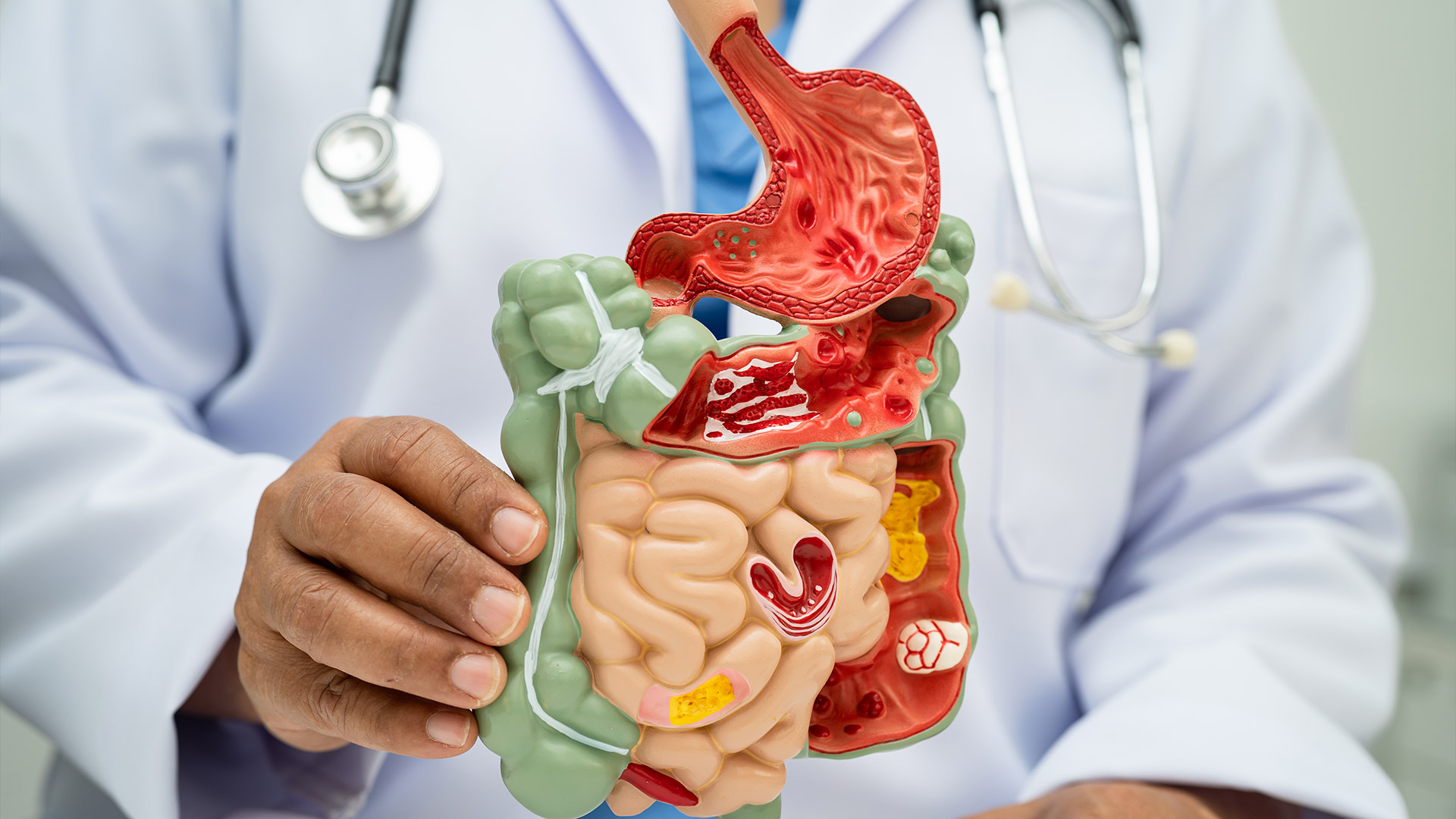How Gut Health Affects Aging: Steps to a Youthful Digestive System
Your gut is at the center of your overall health, and maintaining a healthy digestive system is key to slowing down the aging process.

As we age, we often focus on skin care, exercise, and mental health when it comes to maintaining our youthfulness. But there’s one area of our body that plays a crucial role in how we age that is often overlooked: our gut health. The gut is not just responsible for digestion – it’s intricately connected to immune function, skin health, mental well-being, and overall longevity.
Emerging research has shown that maintaining a healthy digestive system can have a profound effect on how we age. A healthy gut can help protect against age-related diseases, boost energy levels, and keep our skin glowing. On the other hand, poor gut health can contribute to inflammation, a weakened immune system, and a host of other health problems that speed up the aging process.
In this article, we’ll explore how gut health affects aging and share practical steps you can take to maintain a youthful, thriving digestive system as you age.
The Gut and Aging: Why Gut Health Matters
Your gut is home to trillions of microorganisms, including bacteria, viruses, and fungi that play an essential role in digestion, metabolism, and immune function. This collection of microbes is known as the gut microbiome, and its composition and balance are key to overall health.
As we age, the diversity and balance of our gut microbiome can change, which may contribute to several age-related health issues:
1. Digestive Issues and Slower Digestion
As we age, the digestive system tends to slow down. Reduced stomach acid production, changes in gut motility, and decreased enzyme function can lead to symptoms like bloating, constipation, and indigestion. A disrupted microbiome can also make it harder for the body to break down and absorb nutrients, leading to deficiencies in essential vitamins and minerals.
2. Increased Inflammation and Immune Decline
Chronic low-grade inflammation, often referred to as inflammaging, is a hallmark of aging. This type of inflammation contributes to age-related diseases, such as arthritis, cardiovascular disease, and neurodegenerative conditions. An imbalanced gut microbiome has been linked to increased intestinal permeability, also known as leaky gut, which allows toxins and inflammatory molecules to enter the bloodstream, triggering systemic inflammation.
Since approximately 70% of the immune system is located in the gut, an unhealthy microbiome can lead to a weakened immune response, making the body more susceptible to infections, autoimmune diseases, and chronic conditions.
3. Mental Health and Cognitive Function
The gut-brain connection is real. The gut-brain axis is a two-way communication system between the gut and the brain, with gut health having a direct impact on mental health, mood, and cognitive function. An imbalance in the gut microbiome has been linked to conditions like depression, anxiety, and even Alzheimer's disease.
Chronic inflammation in the gut can contribute to the production of stress hormones like cortisol, which affects both mood and cognitive health. Maintaining a healthy gut microbiome can improve mental clarity, reduce stress, and even slow down age-related cognitive decline.
Steps to Maintain a Youthful Digestive System
The good news is that there are plenty of steps you can take to maintain gut health as you age, which in turn can help slow down the aging process. Here are some practical tips to keep your digestive system in top shape:
1. Eat a Gut-Friendly, Fiber-Rich Diet
One of the most effective ways to maintain gut health is through diet. The food you eat directly impacts the composition of your gut microbiome. A diet rich in fiber, prebiotics, and probiotics can help support a balanced microbiome and promote digestive health.
- Fiber: Fiber-rich foods like fruits, vegetables, whole grains, and legumes feed the beneficial bacteria in your gut, promoting a healthy balance of microbes. Aim for at least 25–30 grams of fiber per day. - Prebiotics: Prebiotics are plant fibers that nourish beneficial gut bacteria. Foods like garlic, onions, bananas, and asparagus are great sources of prebiotics. - Probiotics: Probiotics are live beneficial bacteria that support a healthy microbiome. You can find probiotics in fermented foods like yogurt, kimchi, sauerkraut, and kombucha. Consider adding these foods to your diet to promote a healthy gut flora.
Real Example: Gisele Bündchen, the supermodel, is known for prioritizing a healthy, balanced diet, rich in fiber and probiotics, to maintain her gut health. She includes fermented foods and plant-based meals as part of her routine to promote digestive wellness.
2. Stay Hydrated
Drinking plenty of water is essential for proper digestion and overall gut health. Water helps break down food and absorb nutrients, while also keeping the digestive system running smoothly. Dehydration can lead to constipation, which is common as we age.
Aim for 8 cups of water a day, more if you’re active or in a hot climate. If you’re feeling sluggish or constipated, drinking a glass of water can often help get things moving in the digestive system.
3. Exercise Regularly
Exercise isn’t just for keeping your muscles toned—it also benefits your digestive system. Regular physical activity can help improve gut motility, making it easier for food to pass through your system and reducing the risk of constipation.
Exercise also helps reduce stress, which can negatively impact gut health. A combination of cardio, strength training, and yoga can help maintain a healthy gut microbiome, reduce inflammation, and support overall digestive health.
Real Example: Michelle Obama, former First Lady and fitness advocate, has long emphasized the importance of exercise for maintaining both physical and mental health. Her focus on regular movement helps keep her gut and body in great shape.
4. Reduce Stress
Chronic stress is one of the biggest disruptors of gut health. When we’re stressed, our body produces cortisol, which can affect the gut and increase inflammation. Chronic stress can also lead to conditions like irritable bowel syndrome (IBS) or acid reflux.
Incorporating stress management techniques such as meditation, deep breathing, mindfulness, or even spending time outdoors can help lower cortisol levels and promote a balanced gut. Managing stress effectively can also improve overall mental and cognitive health, further slowing down the aging process.
Real Example: Oprah Winfrey has been vocal about the role of meditation and mindfulness in managing stress. Her commitment to mindfulness has helped her maintain a balanced lifestyle and keep her gut health and overall well-being in check.
5. Get Enough Sleep
Sleep plays a crucial role in maintaining gut health. During sleep, the body regenerates cells and balances hormones, including those involved in digestion. Poor sleep can disrupt gut function, increase inflammation, and lead to digestive problems like acid reflux or bloating.
Aim for 7–9 hours of quality sleep each night. Create a relaxing bedtime routine that promotes rest and helps your body repair and regenerate. A good night’s sleep supports gut health and contributes to overall aging gracefully.
Gut Health for a Youthful Digestive System
Your gut is at the center of your overall health, and maintaining a healthy digestive system is key to slowing down the aging process. By eating a fiber-rich diet, staying hydrated, exercising regularly, reducing stress, and prioritizing quality sleep, you can support your gut health and enjoy a more youthful, vibrant life.
Taking care of your gut not only helps preserve your digestive function, but also supports your immune system, mental health, and skin health. By making gut health a priority, you’re investing in your long-term wellness and giving yourself the tools to age gracefully.
So, start today by nourishing your gut with the right foods, staying active, managing stress, and getting enough rest. Your gut – and your future self – will thank you for it.


